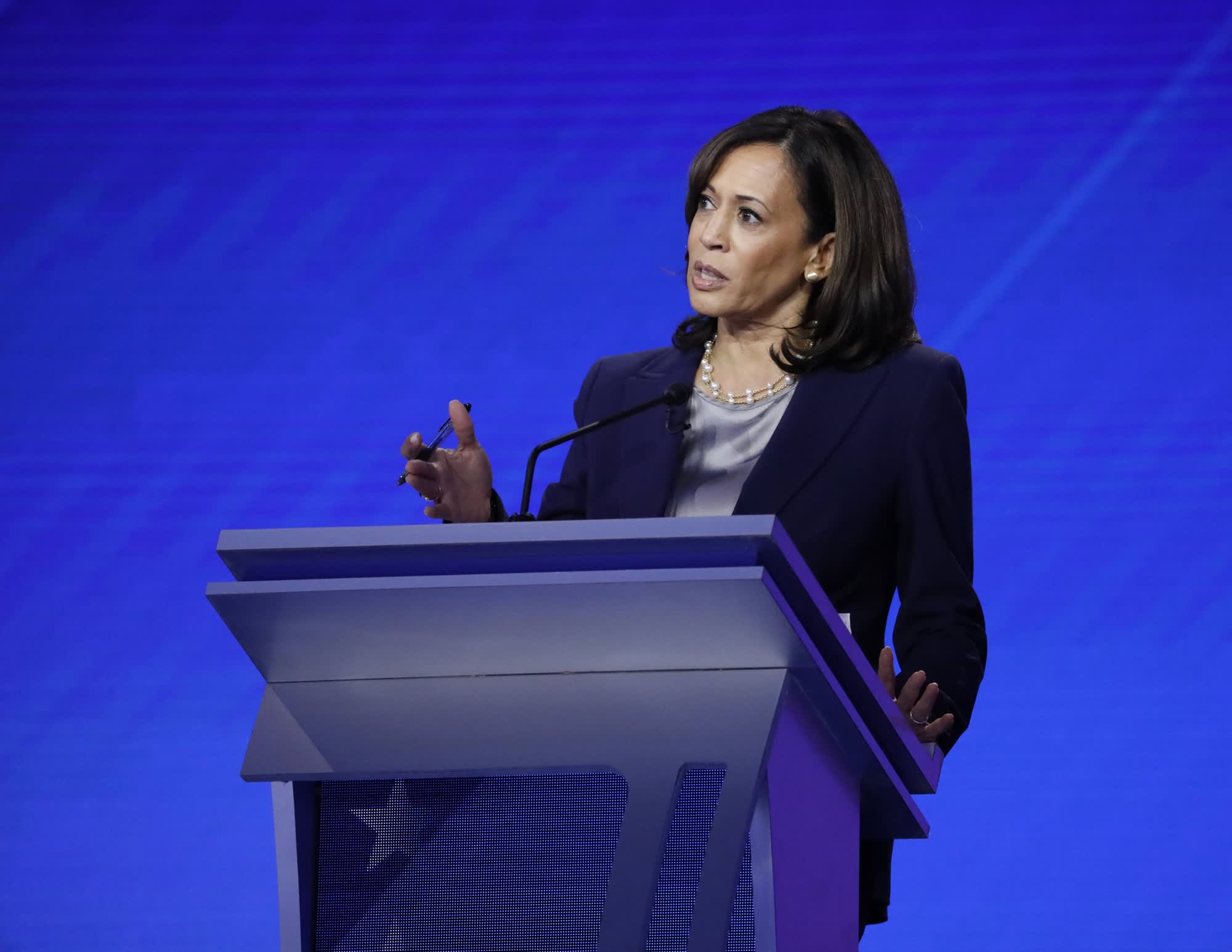A lot has changed since President Joe Biden dropped out of the race and was replaced as Democratic nominee by Vice President Kamala Harris.
The latest change: Back when Biden was the presumptive nominee, Democrats did not want to be interrupted by former President Donald Trump during a debate. Now under Harris, they do.
That’s the main takeaway from Monday’s back-and-forth about whether the first presidential debate should be open-mic night.
The original debate ground rules banned interruptions and crosstalk to the point that the networks could turn off the microphone of any candidate who tried to go beyond their allotted speaking time.
This was thought to benefit Biden, who might look insufficiently robust if his opponent persistently talked over him, while taking away a tactic Trump had used to get the better of others in previous debate.
But when Biden and Trump met on June 27, the rules had a different effect. Biden looked weak and out of it without any interruptions, except for a brief back-and-forth CNN allowed about the candidates’ golf skills. Trump turned in a more disciplined performance since he could not ramble or heckle Biden.
While Biden’s underperformance was the main takeaway from the encounter, knocking him out of the presidential race less than a month later, Trump did much better than in 2020, when he interrupted Biden all the time. Trump himself has conceded that in the first Trump-Biden debate four years ago, in particular, he mighthave come in too hot.
Harris would like to see the return of the Trump we saw in the 2020 debates. She would welcome the interruptions. Four years ago, she chided former Vice President Mike Pence for encroaching on her speaking time during the vice presidential debate. Being able to do that to Trump would be a major PR coup, something that would make it onto T-shirts like Sen. Elizabeth Warren’s (D-MA) “Nevertheless, she persisted” and Hillary Clinton’s “nasty woman.”
Read more at Washingtonexaminer.com



